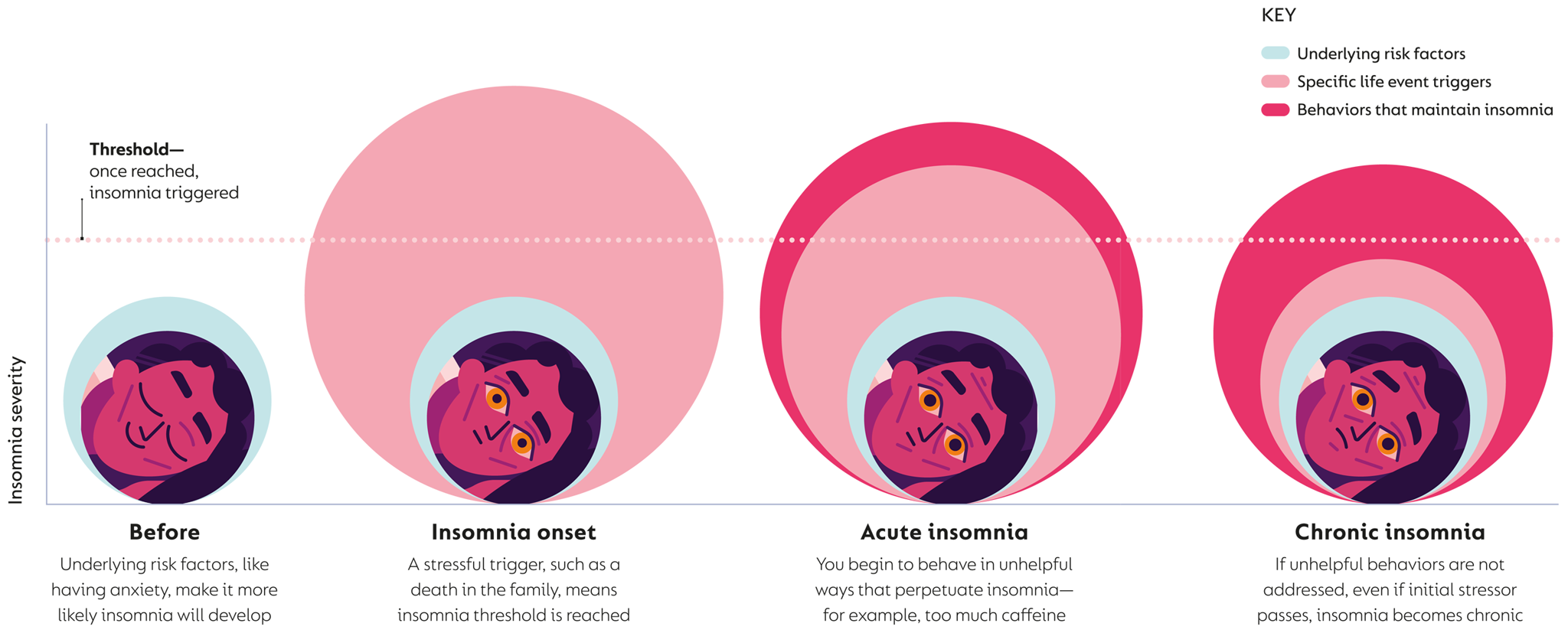I’ve always had sleep issues. What’s wrong with me?
Consistently struggling to get to or stay asleep or waking too early are the classic hallmarks of insomnia—a sleep disorder with far-reaching effects.
Anyone who has experienced insomnia knows all too well the numerous effects it can have on daily life: daytime drowsiness, irritability, poor memory, fatigue, and difficulties in relationships can all follow on from this condition. Studies have indicated that insomnia affects approximately 10–30 percent of the population worldwide, with rates as high as 60 percent in some countries. Women and older people seem to be particularly susceptible.
WHAT CAUSES INSOMNIA?
A combination of psychological, behavioral, environmental, and biological components are all thought to play their part in the onset and continuance of insomnia. Some people have a higher risk of developing insomnia: among the predisposing factors are anxiety, depression, some prescription medications, chronic stress, or some of the hormonal changes that come with age. Studies have also shown that genetics play a part, and insomnia often runs in families.
Specific life events can also disrupt sleep and trigger a bout of insomnia, such as the stress of a new job, as well as changes to schedules caused by shift work or jet lag. A few bad nights of sleep here and there is normal, and acute, or short-term, insomnia often disappears once the stressful event passes or we adapt to it. However, for some people, insomnia can become chronic, or long-term. Once someone has had difficulty sleeping for more than four weeks, they have usually begun to think about sleep differently, acting in ways that perpetuate the issue. Behaviors that contribute to insomnia continuing include caffeine, alcohol, or nicotine use; inconsistent bedtimes; and too much time spent browsing social media in bed.
INSOMNIA IS A HUNGRY BEAST
When insomnia strikes, changing your bedtime habits, developing relaxation strategies, and practicing good sleep hygiene are vital. Early intervention in these areas can often be enough to stop insomnia from becoming chronic. It’s also important to remind yourself that a bout of acute insomnia is perfectly normal; insomnia is fed by fear, so the more you worry about not being able to sleep, the worse it is likely to get. CBTI is one of the most effective techniques for helping you rethink things and address your bad habits and negative thoughts around sleep. By doing so, you can learn to nurture the mental and physical conditions necessary for a good night’s sleep.
Insomnia progression
This graphic shows that insomnia usually begins with a triggering event. Sometimes there are latent risk factors before the onset, too. To cope with the stressful trigger, you may develop unhelpful behaviors that actually maintain insomnia. If these behaviors become ingrained, they can mean chronic insomnia develops.

i Double-tap image to read the labels
Before
Underlying risk factors, like having anxiety, make it more likely insomnia will develop
Insomnia onset
A stressful trigger, such as a death in the family, means insomnia threshold is reached
Acute insomnia
You begin to behave in unhelpful ways that perpetuate insomnia—for example, too much caffeine
Chronic insomnia
If unhelpful behaviors are not addressed, even if initial stressor passes, insomnia becomes chronic
